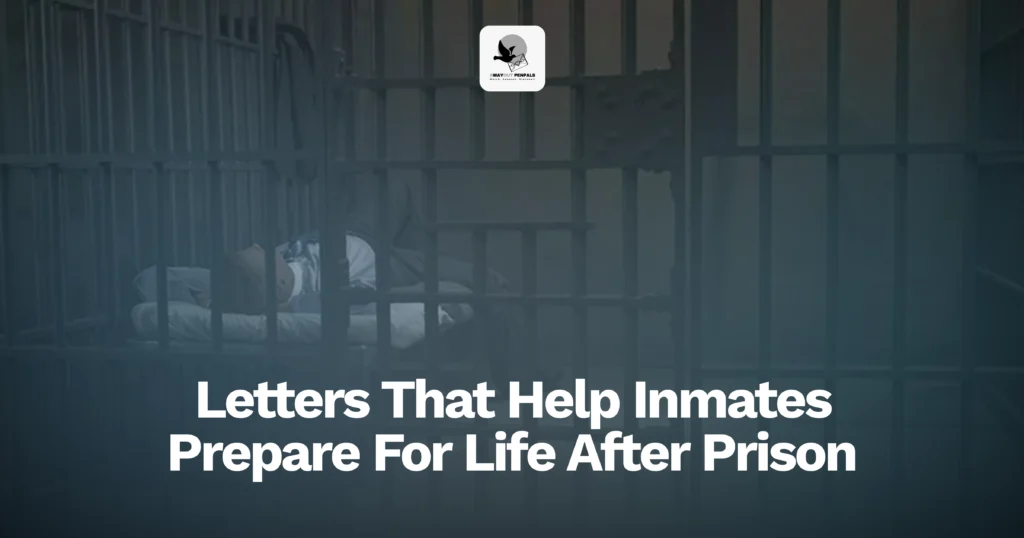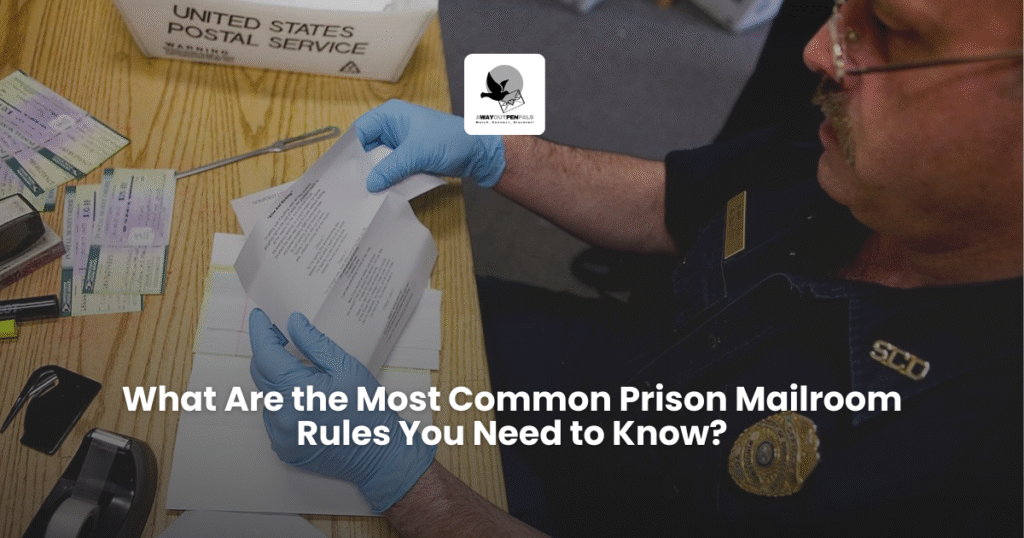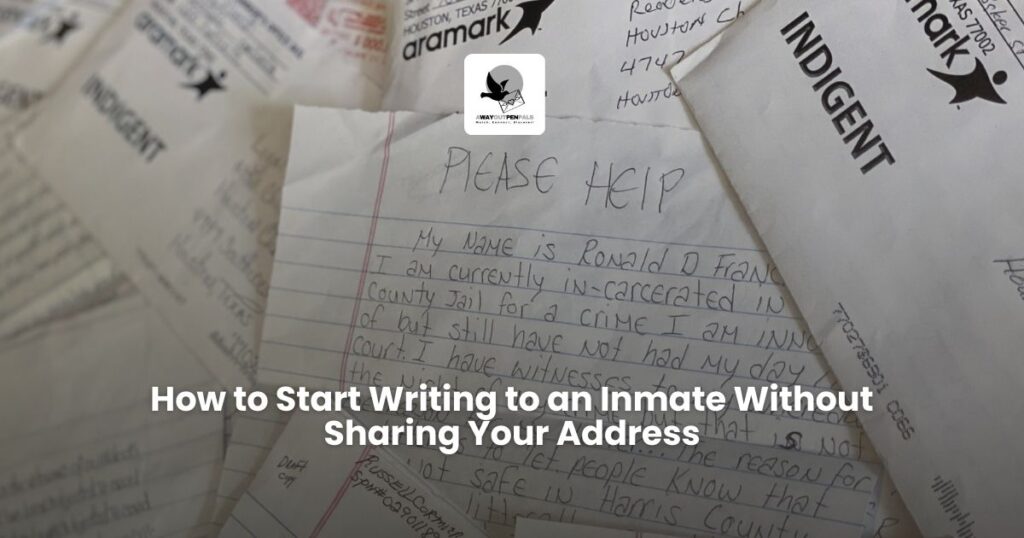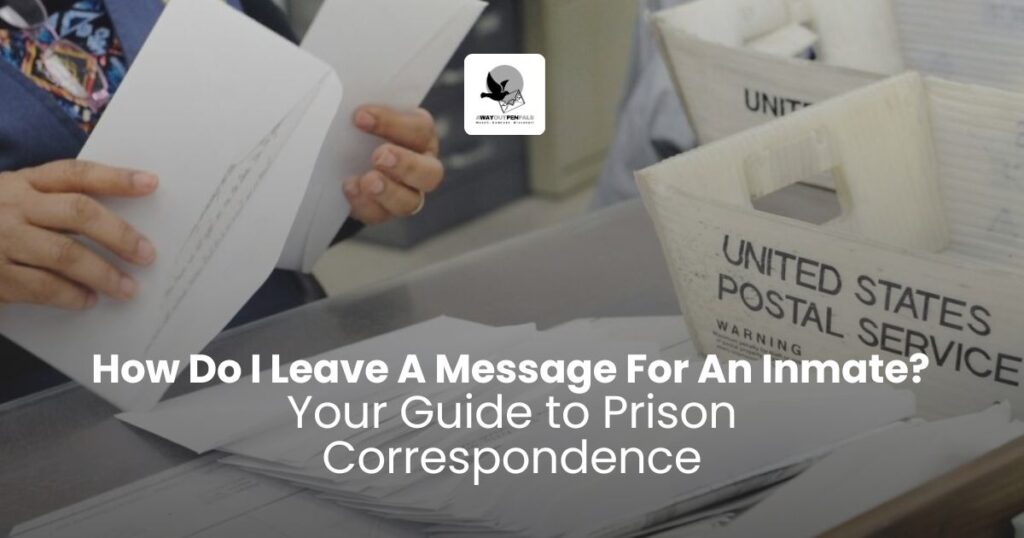You’re free to go.
For many inmates, these four words are more terrifying than comforting. Why? Because life after prison isn’t freedom, it’s a whole new struggle.
Every year, over 600,000 people are released from U.S. prisons…
For many inmates, getting out of prison should feel like a fresh start… but instead, it feels scary, lonely and confusing.
There’s no welcome party. No manual on how to survive life after prison.
Just endless questions:
Where do I go? How do I find a job? Who’s even going to give me a chance?
The truth is, life after incarceration is hard, really hard. The world has changed. People have moved on. And for most, the support system just isn’t there.
But here’s the surprising part:
Something as simple as writing letters to a pen pal can actually make a huge difference.
In this blog, we’ll explore how pen pal programs like A Way Out Pen Pals are helping inmates build confidence, rebuild trust and prepare for a life beyond prison bars.
Because everyone deserves a second chance and sometimes, it starts with a letter.
Let’s explore how something as old-school as writing letters can play a powerful role in successful reentry and reducing recidivism.
Why Human Connection Matters Before Release
Preparing for life after prison shouldn’t start on release day; it should start months, even years, before that.
This is where human connections come… a genuine relationship with someone on the outside gives them a sense of normalcy.
That connection can remind them who they are beyond their sentence. It can happen in any way, like you can share everyday stories, talk through emotions or simply listen to them.
A consistent communication helps:
- Rebuild self-worth
- Practice emotional expression
- Strengthen communication and trust
These are things no textbook or reentry course can teach, but a regular, thoughtful conversation with a pen pal often can.
- Read our full blog post: Writing to an inmate: A small act that creates big change
The Mental Shift: Why It’s So Hard to Adjust After Prison
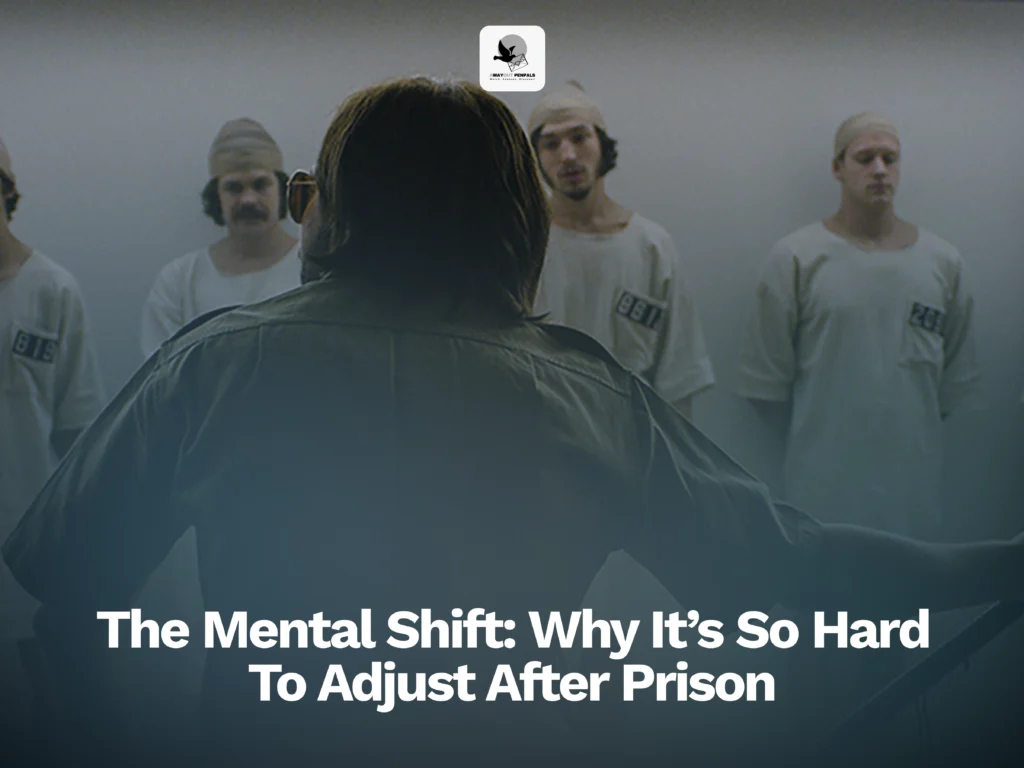
In prison, daily life is completely controlled; schedules are set, decisions aren’t theirs to make, and they’re surrounded by people all day, most of whom are strangers.
It’s a setup that takes a serious toll on mental health, something we explored more deeply in our post on Mental Health in Prison: The Hidden Trauma of Incarceration.
Most people come out of prison to a world that’s moved on. There is no job lined up, no place to live and no idea what’s next.
That’s what adjusting to life after prison feels like.
Inmates often face:
- Social isolation: Many have lost contact with family or friends.
- Technology shock: Even basic tasks like using a smartphone can feel foreign.
- Job and housing barriers: A criminal record still brings heavy stigma.
- Mental health struggles: Anxiety, depression, PTSD and more.
In short? Life after incarceration is overwhelming.
This is where pen pals step in as an unexpected (but powerful) source of support.
How Pen Pals Help Prepare Inmates for Life After Prison
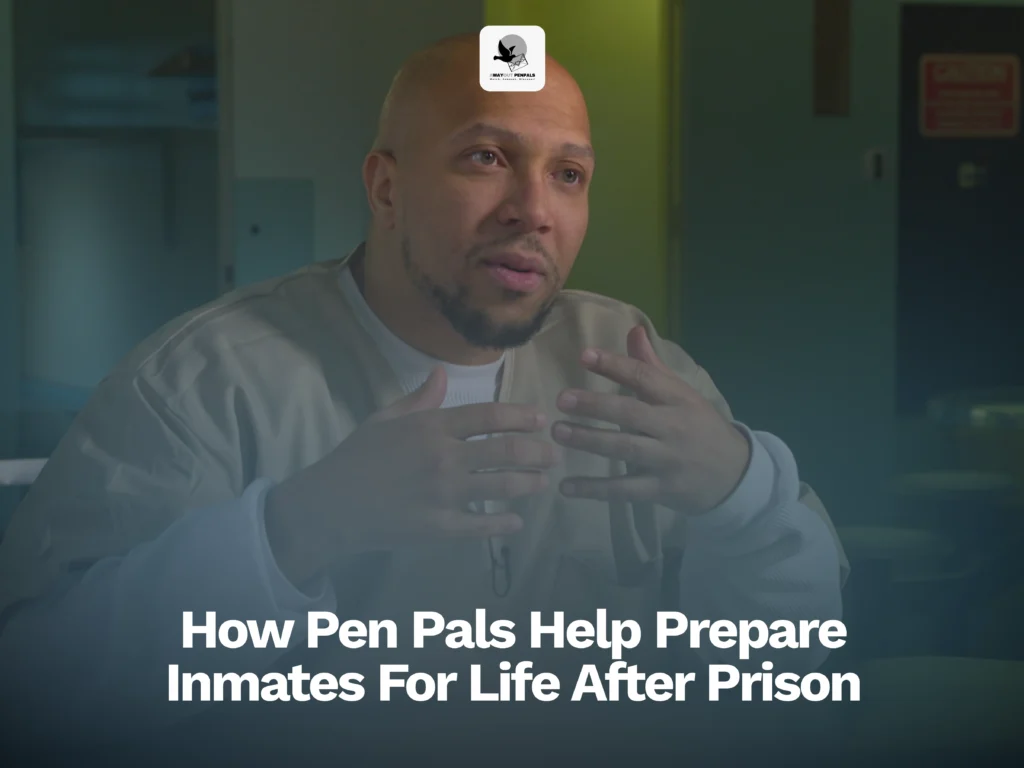
1. They Keep Inmates Emotionally Grounded
When inmates have someone to write to regularly, it reminds them they’re still human, not just a number in the system. Emotional support from pen pals can:
- Reduce feelings of isolation
- Increase hope and motivation
- Help inmates process trauma and emotions
This emotional resilience is crucial for navigating reentry challenges.
Want to see how this works in action? Check out this reentry program by GEO Reentry, which combines behavioral therapy and mentoring, similar to the emotional impact pen pals can have.
2. They Build Communication Skills
Letter writing isn’t just about storytelling. It teaches:
- Empathy – Learning to listen and understand others
- Self-reflection – Thinking deeply about actions and feelings
- Consistency – Following through and maintaining relationships
These are soft skills that employers look for and that parole officers value in post-release progress.
3. They Create a Vision for the Future
Pen pals can inspire inmates to think about life beyond prison walls. Conversations often lead to:
- Setting goals (like going back to school or finding a trade)
- Making plans for housing or work
- Staying away from negative influences
It’s like having your own accountability partner before you’re even out.
Pen Pals and Successful Recidivism Programs
If you’ve been digging into successful recidivism programs, you’ll notice one thing they all share: human connection.
Whether it’s job training, housing support, or therapy, programs only work when people feel seen, heard and supported.
According to the Prison Policy Initiative, reentry isn’t just about checking boxes. It’s about removing obstacles, social, emotional and systemic.
Pen pals fill that gap. They’re not government workers or probation officers. They’re just… real people who care.
And sometimes, that’s all it takes to break the cycle.
Thinking About Becoming a Pen Pal?
Before starting, you should consider a few things, which are:
- Do I believe in second chances?
- Can I write a few minutes a week?
- Would I want someone to believe in me if I made a mistake?
If your answer is yes, then maybe this is your sign.
- Join A Way Out Pen Pals today and help someone take their first step toward freedom that lasts.
Final Thoughts: The First Step Out Doesn’t Always Start at the Gate
Here’s the thing: freedom doesn’t begin the day the bars slide open.
It starts earlier.
With a letter.
With a name at the top of a page.
With someone on the outside saying, “I see you. You still matter.”
In this post, we talked about the heavy reality of life after prison, how it’s not just about leaving, it’s about learning how to live again. We explored the emotional rollercoaster, the fear of reentering a fast-moving world and the loneliness that comes with it.
But we also uncovered something simple… and powerful.
That a steady connection, a pen pal, can become the very thing that helps someone hold on. Rebuild. Dream again.
And when someone believes in their future while they’re still inside… they walk out stronger, more prepared, and more human.
So no, a pen pal can’t erase the past.
But they can help someone write a better next chapter.
FAQs
1. Can having a pen pal really help someone adjust to life after prison?
Yes, absolutely. Regular communication with a pen pal can provide emotional support, help improve communication skills, and remind incarcerated individuals that someone on the outside cares. This emotional connection can be a big part of building confidence and preparing mentally for life after incarceration.
2. How does writing letters actually support reentry into society?
Writing letters helps inmates express themselves, reflect on their experiences and build trust, all of which are essential for adjusting to life after prison. It also helps them practice real-life social interaction, which many struggle with after years of isolation.
3. Is letter writing considered part of a successful recidivism program?
While not every reentry program includes pen pal communication, many experts recognize the value of human connection in reducing recidivism. Consistent, meaningful relationships like those built through pen pals can be a key part of what makes a reentry plan successful.
4. What kind of inmates benefit most from pen pals?
Every incarcerated person can benefit, but those who are serving longer sentences or have little to no contact with friends or family often find pen pals especially helpful. For many, it’s the only positive relationship they have during incarceration.
5. What topics do pen pals usually write about?
Conversations vary, but many letters cover everyday life, hopes for the future, memories, hobbies, and emotional check-ins. These aren’t just surface-level chats; they’re real conversations that help people prepare emotionally and mentally for life after prison.
6. How can I become a pen pal and help someone get ready for reentry?
Joining a pen pal program like A Way Out Pen Pals is a great place to start. You’ll get guidance, resources and a safe way to begin connecting with someone who’s eager to change their life for the better.

